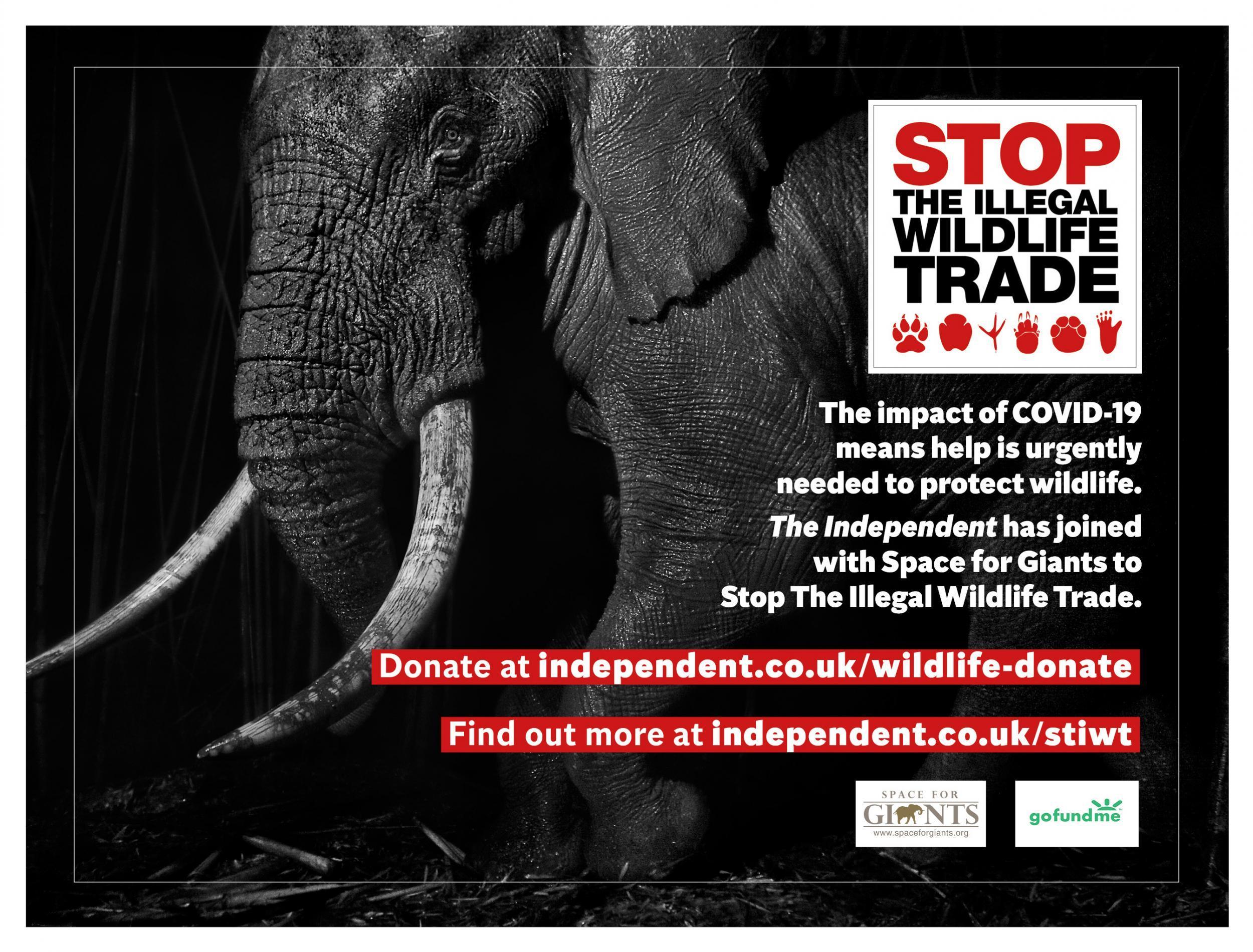Prince William says ‘urgent steps’ needed to eradicate illegal wildlife trade in fight against future pandemics
We are protecting wildlife at risk from poachers due to the conservation funding crisis caused by Covid-19. Help is desperately needed to support wildlife rangers, local communities and law enforcement personnel to prevent wildlife crime. Donate to help Stop the Illegal Wildlife Trade HERE
Your support helps us to tell the story
From reproductive rights to climate change to Big Tech, The Independent is on the ground when the story is developing. Whether it's investigating the financials of Elon Musk's pro-Trump PAC or producing our latest documentary, 'The A Word', which shines a light on the American women fighting for reproductive rights, we know how important it is to parse out the facts from the messaging.
At such a critical moment in US history, we need reporters on the ground. Your donation allows us to keep sending journalists to speak to both sides of the story.
The Independent is trusted by Americans across the entire political spectrum. And unlike many other quality news outlets, we choose not to lock Americans out of our reporting and analysis with paywalls. We believe quality journalism should be available to everyone, paid for by those who can afford it.
Your support makes all the difference.Prince William has called for “urgent steps” to eradicate the illegal wildlife trade as part of the global fight against future pandemics.
The Duke of Cambridge spoke during a virtual meeting of conservation leaders and taskforce members from United for Wildlife, the initiative he leads.
“Believe it or not, this is my first webinar,” the royal said. “I’m very pleased that it is on a subject that is so close to my heart – ending the illegal wildlife trade.”
The discussion touched on how the coronavirus pandemic is impacting conservation efforts, and the links between zoonotic diseases - which jump from animals to humans - and the wildlife trade.
The duke’s intervention came after The Independent revealed the potential scale of the conservation crisis caused by the pandemic, which has sent tourism revenues tumbling and in turn impacted the livelihoods of hundreds of wildlife rangers.
The new report showed the urgency of our Stop The Illegal Wildlife Trade campaign, which was launched by proprietor Evgeny Lebedev to call for an international effort to clamp down on the illegal trade of wild animals, which remains one of the greatest threats to future biodiversity. Funds raised will to pay for vital wildlife-protection projects implemented by the campaign’s partner charity, Space for Giants. This will work to stop the poaching and illegal trafficking of animals.

The Duke of Cambridge pointed to rising awareness of the dangers posed by zoonotic diseases as a key reason to act.
“Never before have the public health risks of the wildlife trade come into such sharp focus. Never before has there been greater public awareness about the dangers of zoonotic diseases like Ebola, Sars, Mers and Covid. And never before has the global incentive to act been so high,” he said.
“Right now, there is a real chance to ensure that the urgent steps that the world must take to prevent future zoonotic disease pandemics are designed in a way that also helps to eradicate the illegal wildlife trade.”
William reflected on 2020 taking “a different, heart-breaking course” and said that the pandemic “has ruined lives and threatened livelihoods across the world”.
“It is important that we learn the lessons from this pandemic, including looking at why the outbreak happened, why it was not stopped earlier, and what can be done to manage any outbreak in the future,” he added.
The 38-year-old added: ”Crucial tourism revenue has largely dried up, and it will be many months, perhaps even years, before it recovers.”
He also highlighted evidence of an increase in the illegal trafficking of wildlife products, citing the Uganda Wildlife Authority which recorded 367 poaching incidents on its patch between February and May this year, more than double the number in the same period in 2019.
He added that action would require a “concerted effort and teamwork” from international organisations, governments, law enforcement, the NGO community and the private sector.
The event was chaired by William Hague, chair of the United for Wildlife Taskforces. Also part of the discussion were Elizabeth Maruma Mrema, executive secretary of the UN Convention on Biological Diversity; Dr Zhi Lu of Peking University; Peter Knights, CEO of WildAid; and Dr Peter Daszak from the EcoHealth Alliance.
Lord Hague said: “From all over the world the companies in our taskforces have shown a strong commitment to combatting the illegal wildlife trade. Now a much greater global effort is required, not only to halt this destructive trade, but to help prevent future pandemics.”

Join our commenting forum
Join thought-provoking conversations, follow other Independent readers and see their replies
Comments